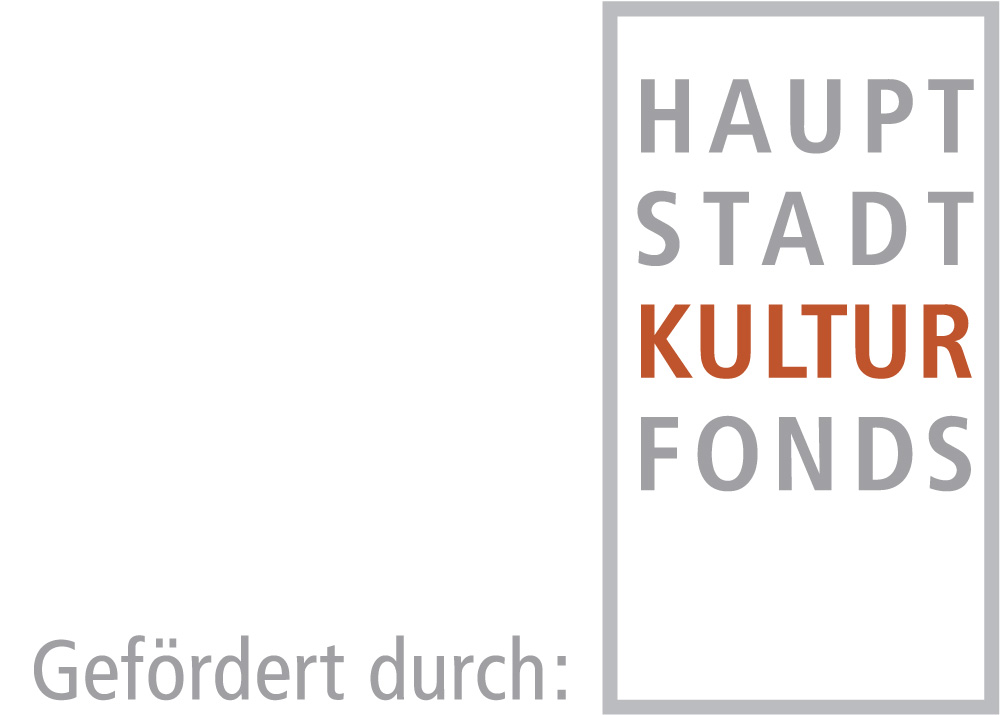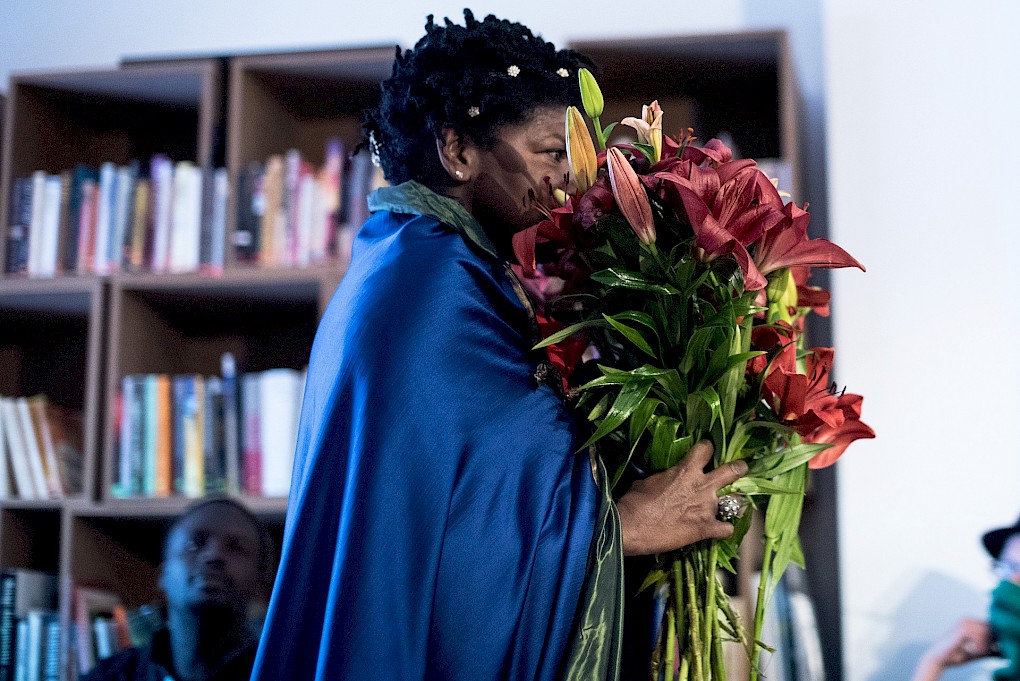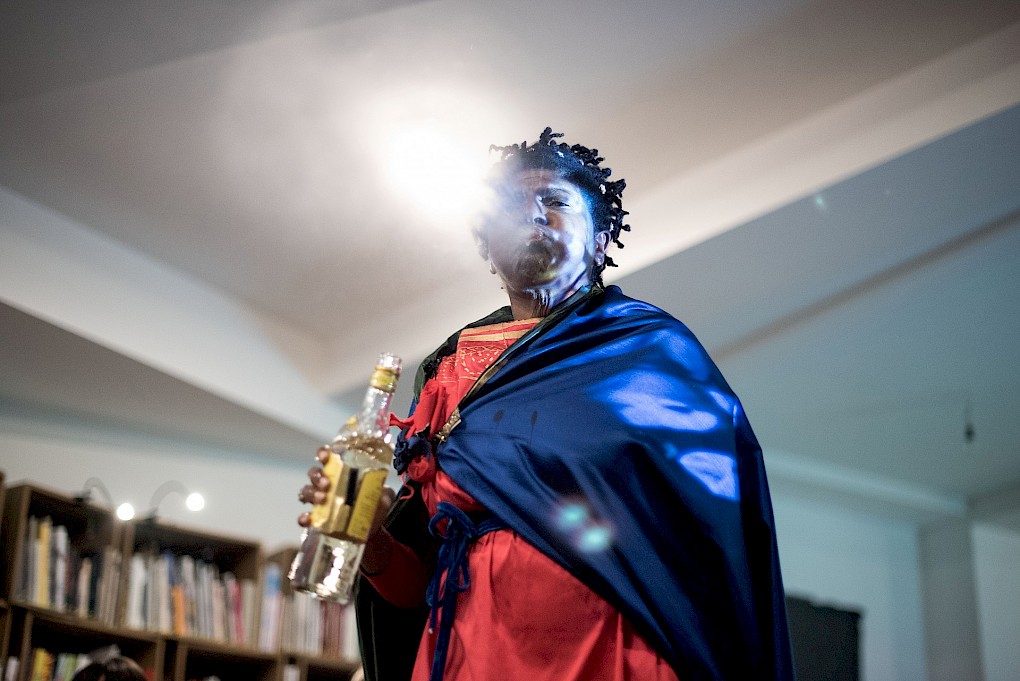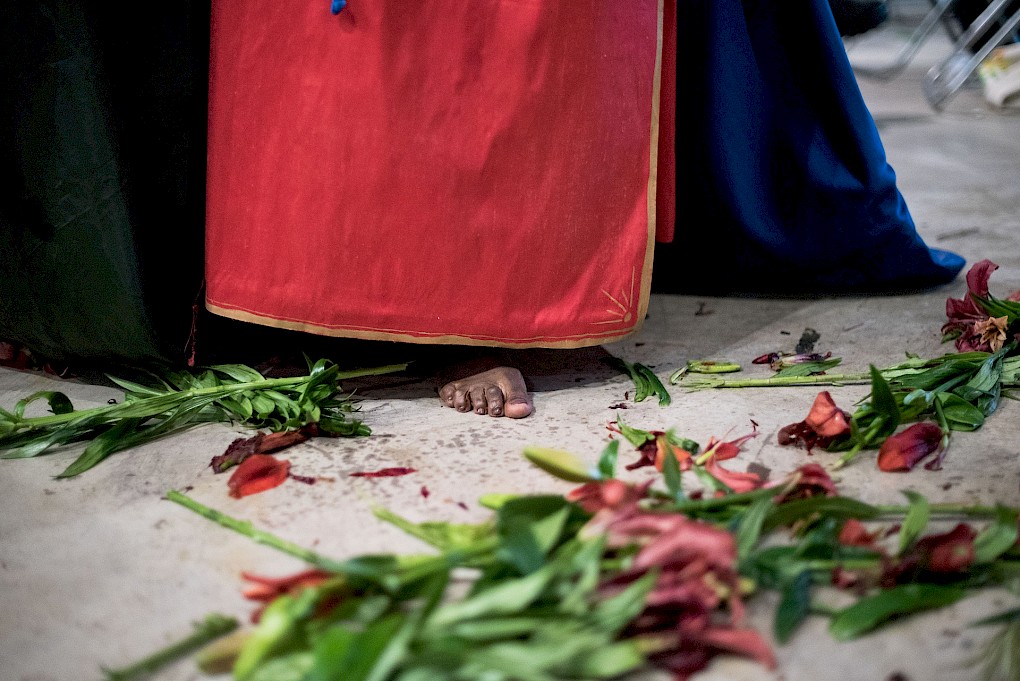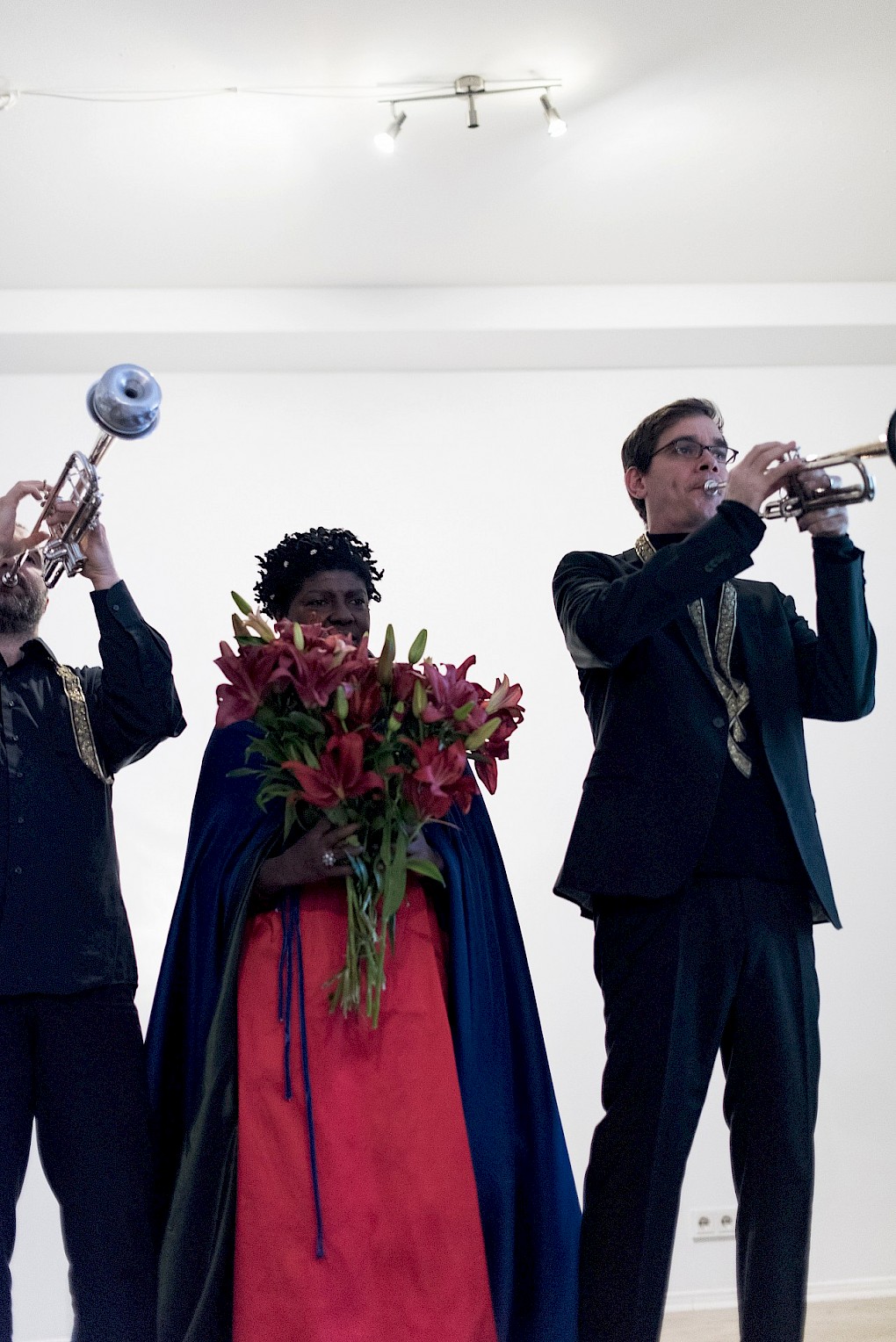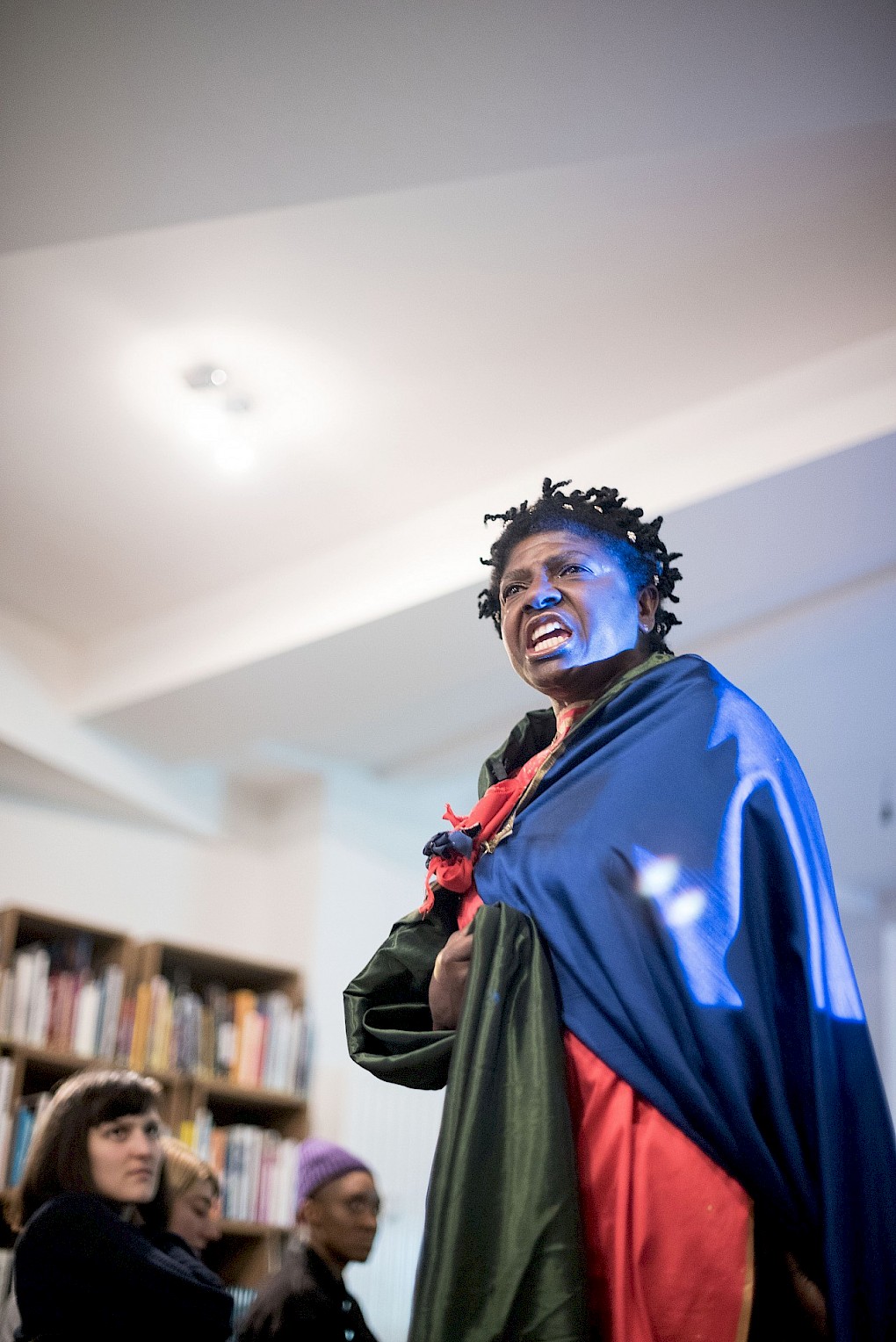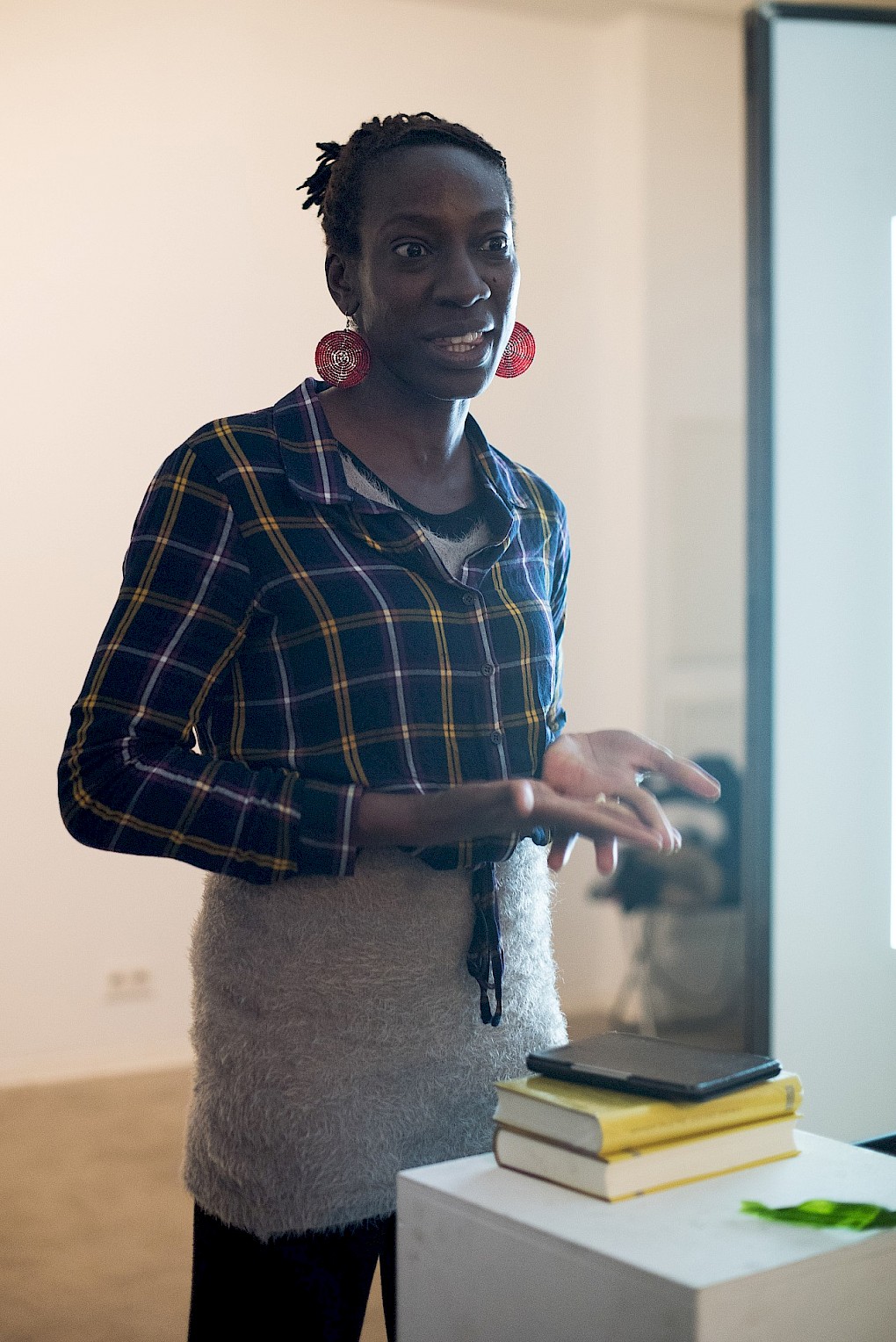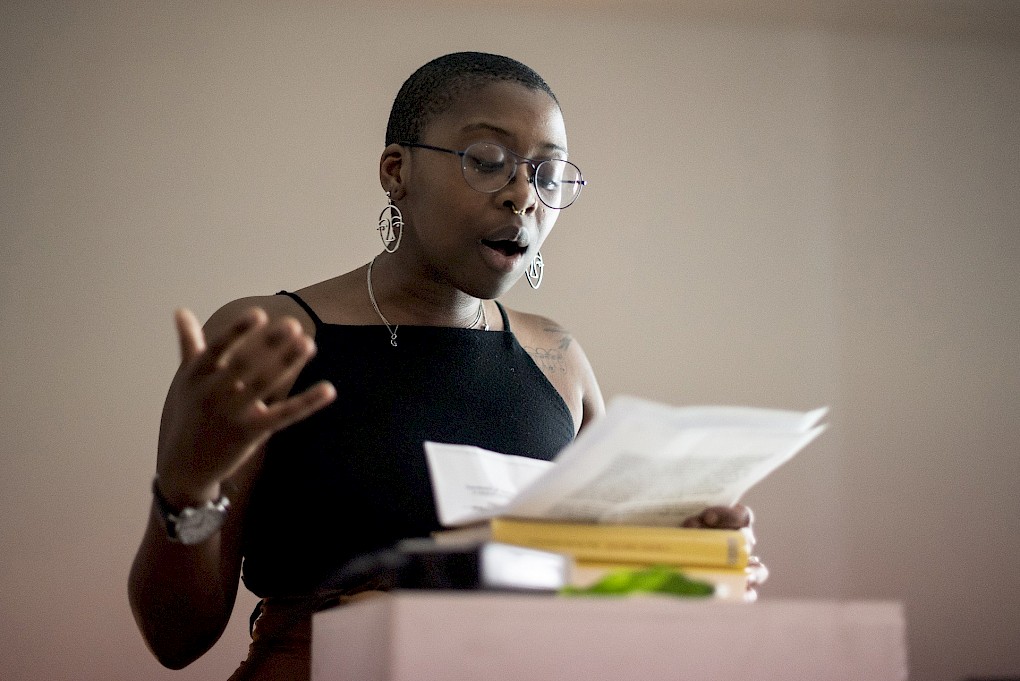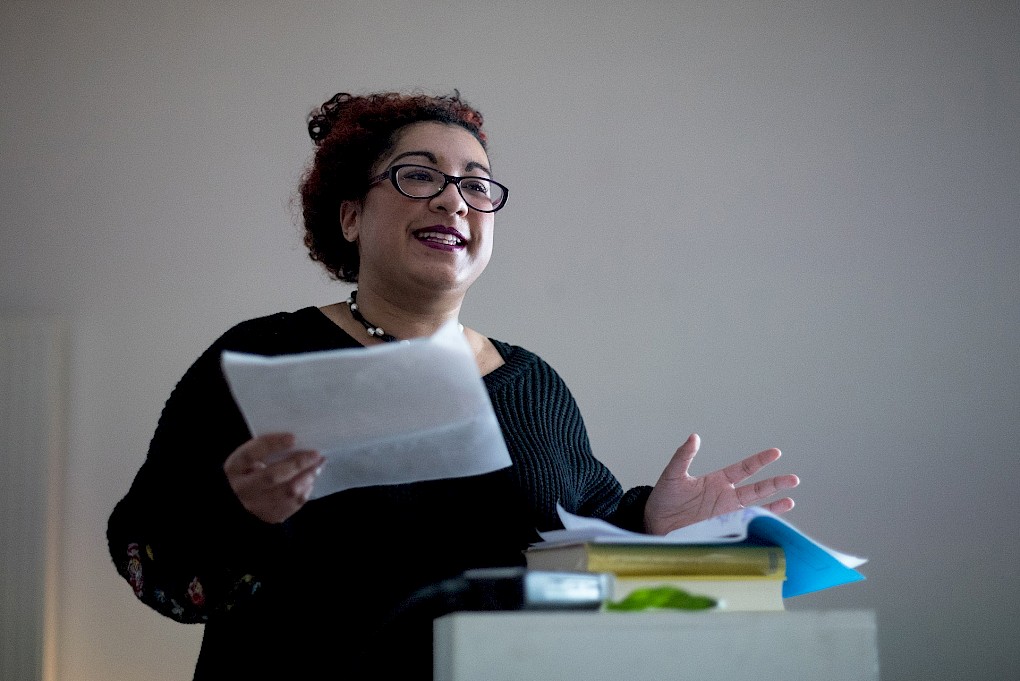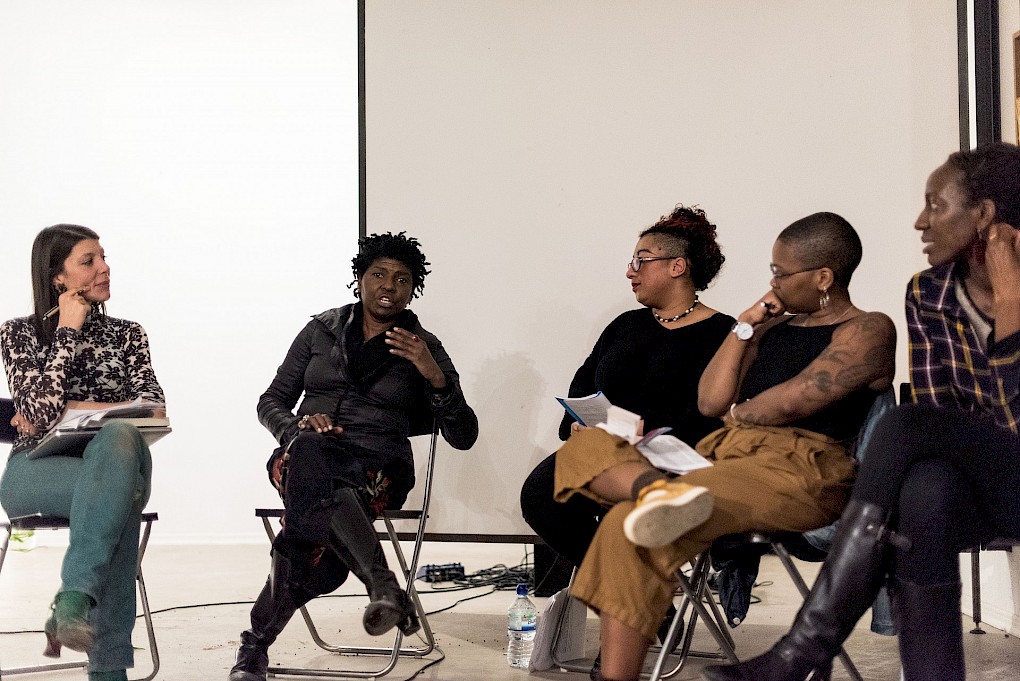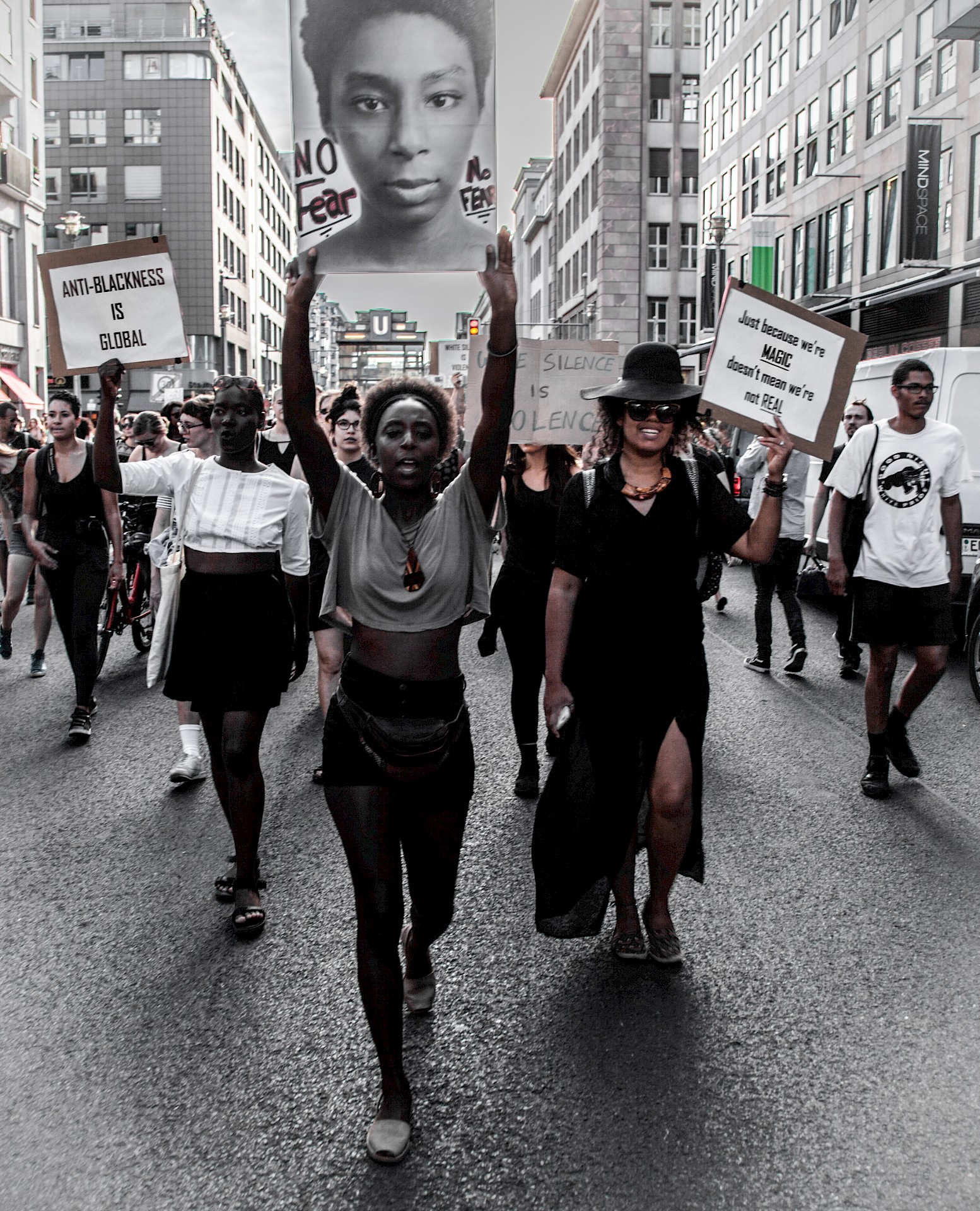Conversation In The Garden
Exercise #1: We Who Are Not The Same
30.03.2018 19:00
With A discussion between Claire Heuchan, Yewande Omotoso, Zoe Samudzi & Elena Agudio and a performative intervention by Maria Magdalena Campos-Pons
Curators Elena Agudio, Federica Bueti, Nathalie Anguezomo Mba Bikoro
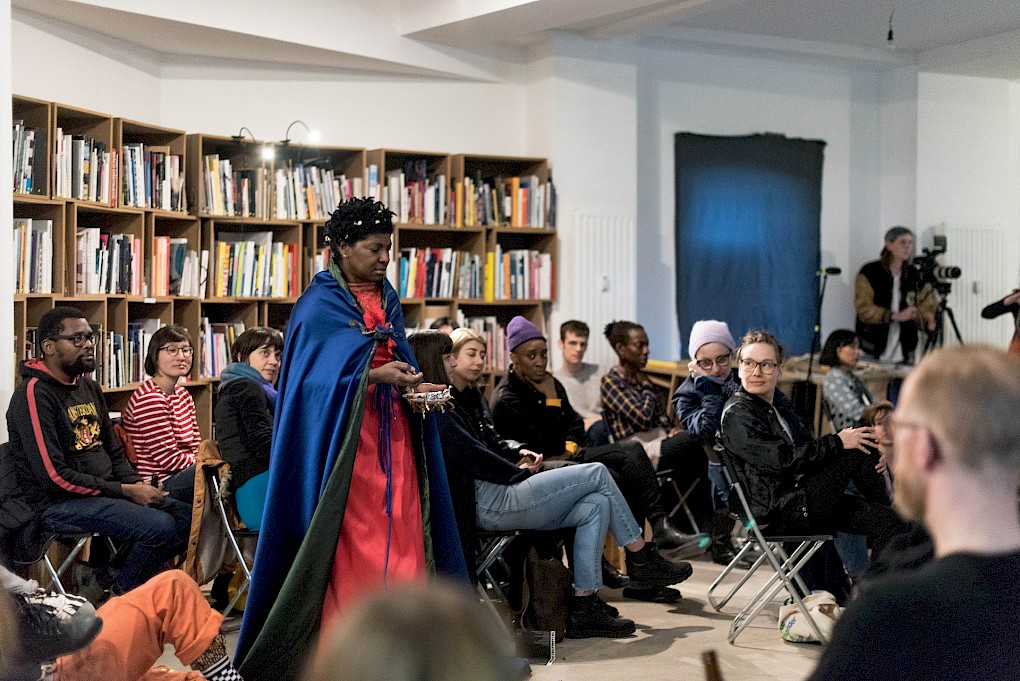
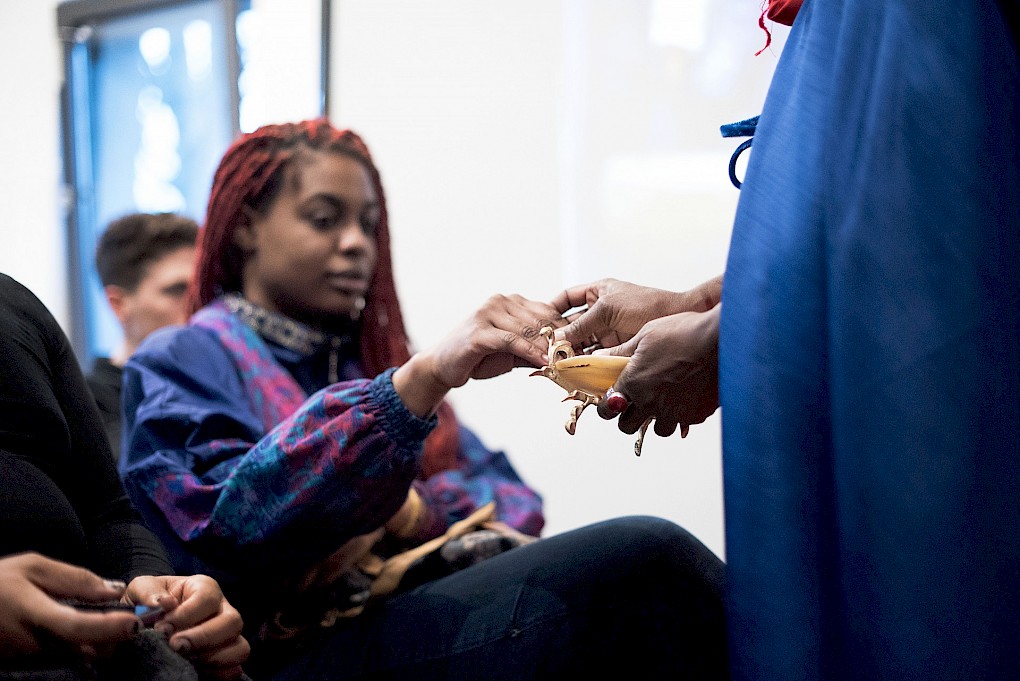
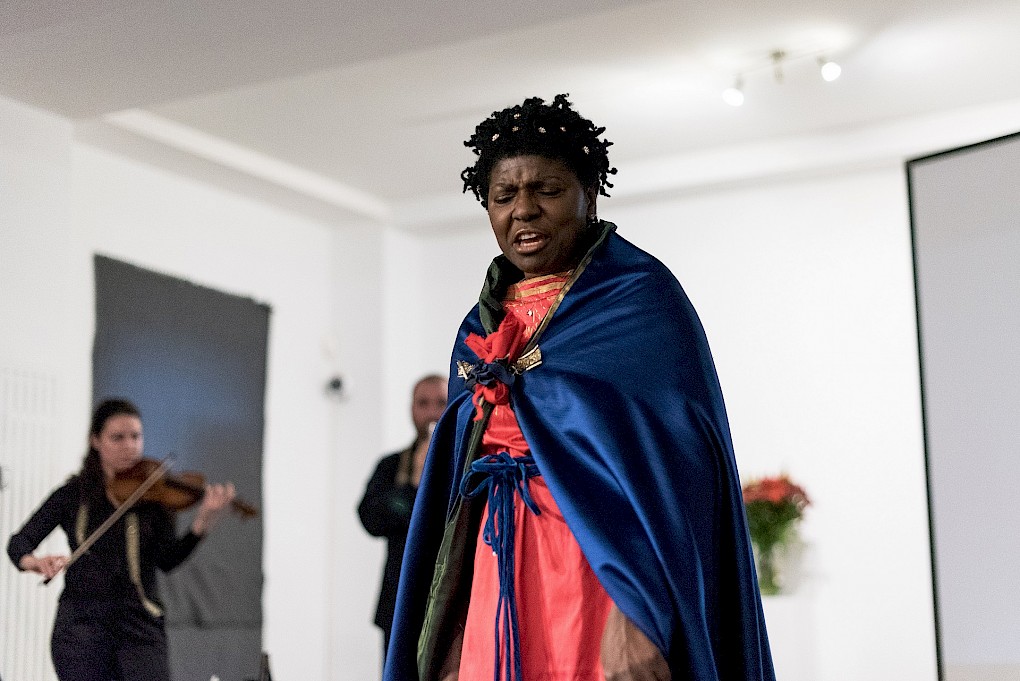
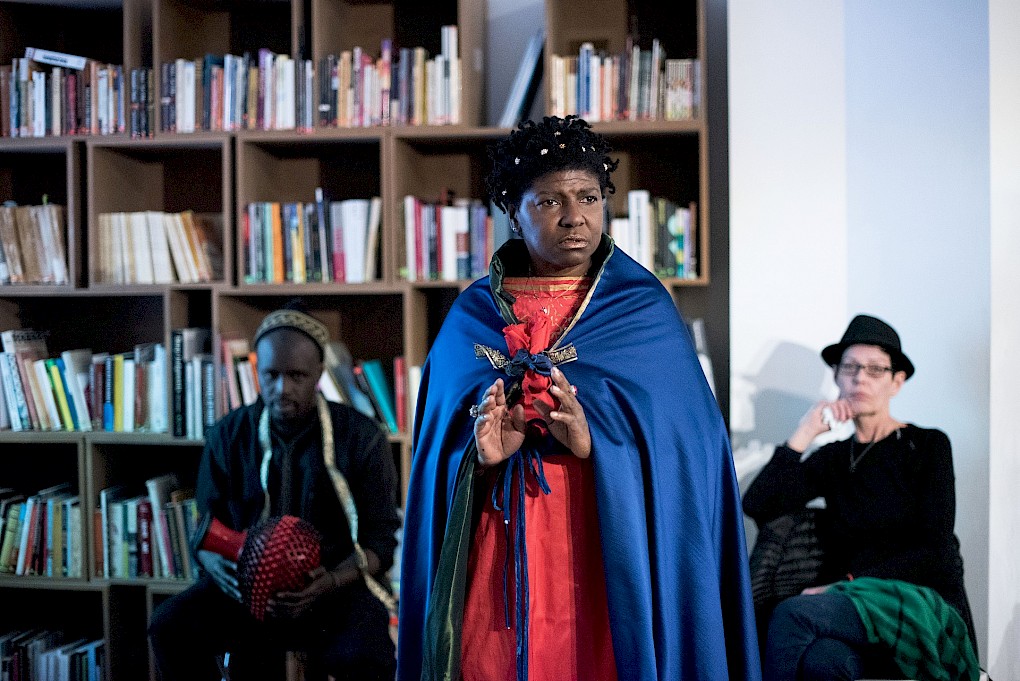

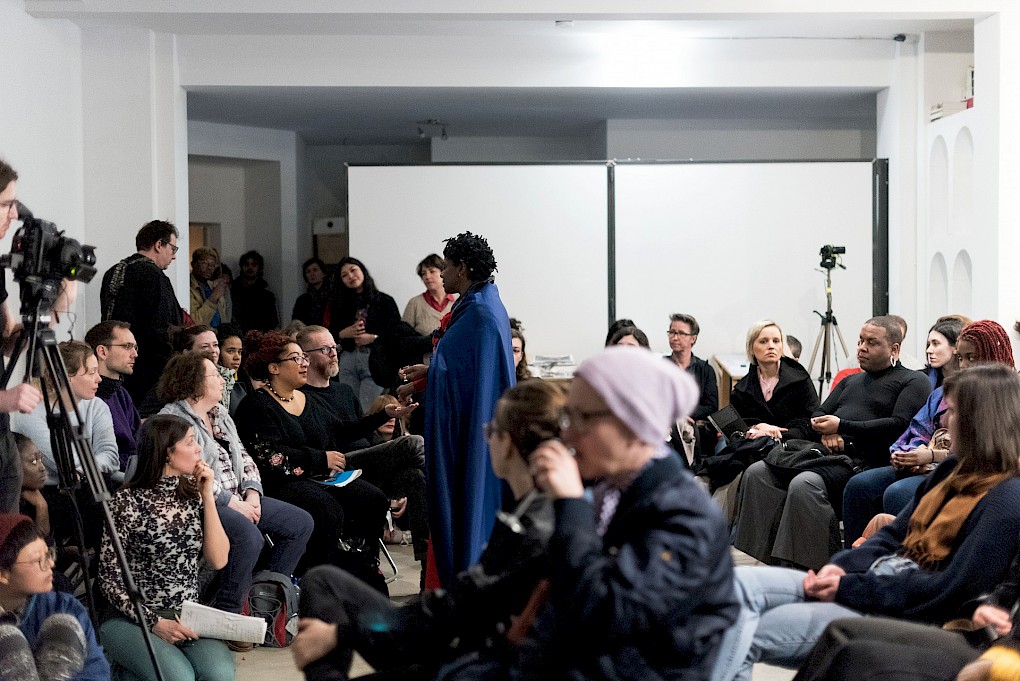
The evening will mark the point of departure for our 2018 programme WE WHO ARE NOT THE SAME with a magic poetformance by Maria Magdalena Campos-Pons, followed by a lecture with writer Yewande Omotoso and a presentation + discussion by Zoé Samudzi and Claire Heuchan.
19:00
Poetformance by Maria Magdalena Campos-Pons
"Conversation In The Garden": a transactional conversation about Spirituality, Gender, Geography, and Idiosyncratic approaches to representation. Maria Magdalena Campos-Pons speak to and with Fra Angelico.
20:00
Lecture by Yewande Omotoso
Using What We Make to Unmake; The Role of the Imagination in Feminist Struggles
20:30
Moderated discussion with Zoe Samudzi, Claire Heuchan and Yewande Omotoso
CONCEPT
What constitutes feminist politics? How do we imagine feminist forms of action and of sisterhood today? What is it that makes it urgent today to look at the many, different legacies of feminist struggles across the world? What kind of feminist practices can be mobilised that respond to the urgency of the now? The first exercise of the series We Who Are Not The Same aims to challenge the very idea of feminism in terms of a predominantly Western-centric set of practices and theories. The exercise addresses the inability of Second Wave feminism to adequately represent non-Western challenges of dealing with one of the most pressing and painful issues within the history of feminist theory and practice: the arrogance of a thought and an experience developed as a universal model from and within the Western episteme, which is unable to represent non-Western perspectives and inconsiderate of other fundamental variables such as social class, race, ethnicity, or sexual preference. As feminist Obioma Nnaemeka stated about the way European and Western feminists have been addressing African women “The arrogance that declares African women ‘problems’ objectifies us and undercuts the agency necessary for forging true global sisterhood. African women are not problems to be solved. Like women everywhere, African women have problems. More important, they have provided solutions to these problems. We are the only ones who can set our priorities and agenda. Anyone who wishes to participate in our struggles must do so in the context of our agenda” (Nnaemeka, O. 2005. “Bringing African Women into the Classroom: Rethinking Pedagogy and Epistemology” in African Gender Studies. Palgrave. (p.57)
Through obsession with characterisation, YEWANDE OMOTOSO is endlessly interested in the details of the lives of her often women-characters, emphasising nuance while simultaneously revealing the seemingly human urge to generalise. This tension exists in her work as a quiet manifesto towards a feminism that encourages careful attention and much self-awareness. Her debut novel ‘Bomboy’ (Modjaji Books, 2011), was shortlisted for the Sunday Times Fiction Prize, MNet Film Award and Etisalat Prizefor Literature. It won the South African Literary Award First Time Author Prize. Yewande’s second novel ‘The Woman Next Door’ (Chatto and Windus, 2016) was longlisted for the Bailey’s Women’s Fiction Prize and the International Dublin Literary Award. In addition ‘The WomanNext Door’ was shortlisted for the Aidoo-Snyder Prize, the Barry Ronge Fiction Prize and the UJ Literary Prize. Born in Barbados, Omotoso grew up in Nigeria and currently lives in South Africa.
Claire Heuchan a Black radical feminist from Scotland, is the award winning blogger Sister Outrider. She is an essayist and feminist theorist, her work exploring themes of power, identity, and liberation politics. Applying a lesbian feminist perspective, her work addresses the potential for interracial solidarity between women. Although the politics of sisterhood are complicated, she aims to be part of building a feminist movement equipped & committed to dismantle every form of structural inequality. In a recent post published under the title 'Dispatches from the Margins: On Feminist Movement Building' she ponders and distinguishes between different concepts of allyship, sisterhood, solidarity and politics of connection. She argues: "White women have a responsibility to actively unlearn their racism. It is the white women who cling to racism that should doubt the legitimacy speaking on feminist politics, not the women of colour whose words are a fundamental challenge to white supremacist capitalist patriarchy."
Zoé Samudzi writes about about race and gender hegemony. She is a queer black woman whose work is dedicated to reclaiming and reframing narratives both within the academy and outside of it. Wielding black feminist & womanist epistemologies, she interrogates structural whiteness and theorizes on decolonizing ways of knowing and truth-telling. She does not identify as a feminist, but as a womanist. In a recent interview she declared: "I’ve come to the point where I’m no longer going to insist upon inclusion in a set of gender politics that actively antagonizes black women/women of color and trans women and sex workers and excludes many others when I could be contributing to an epistemology that is rooted in my ideological oppression and lived experiences as a black woman."
Artist María Magdalena Campos–Pons deals with themes of gender and sexuality, multicultural identity, Cuban culture, and religion/spirituality. Her work is an investigation of history and memory, and their roles in the formation of identity, and renders elements of personal history and persona that have universal relevance. In an effort to create historical narratives that illuminate the spirit of people and places, past and present, her subjects are often her Afro-Cuban relatives as well as herself. Her themes are cross cultural, and cross generational; race and gender expressed in symbols of matriarchy and maternity are thematic ideas.
We Who Are Not the Same is a year-long research and exhibition project which looks at and challenges decolonial intersectional feminist practices and politics to imagine new politics and alliances to respond to questions of the present. This project wants to open up a space for collective experimentations with creating a common ground and a new language for re-appropriating the meaning of feminists' struggles and building new relations of solidarity.
The project is funded by Hauptstadtkulturfonds.
